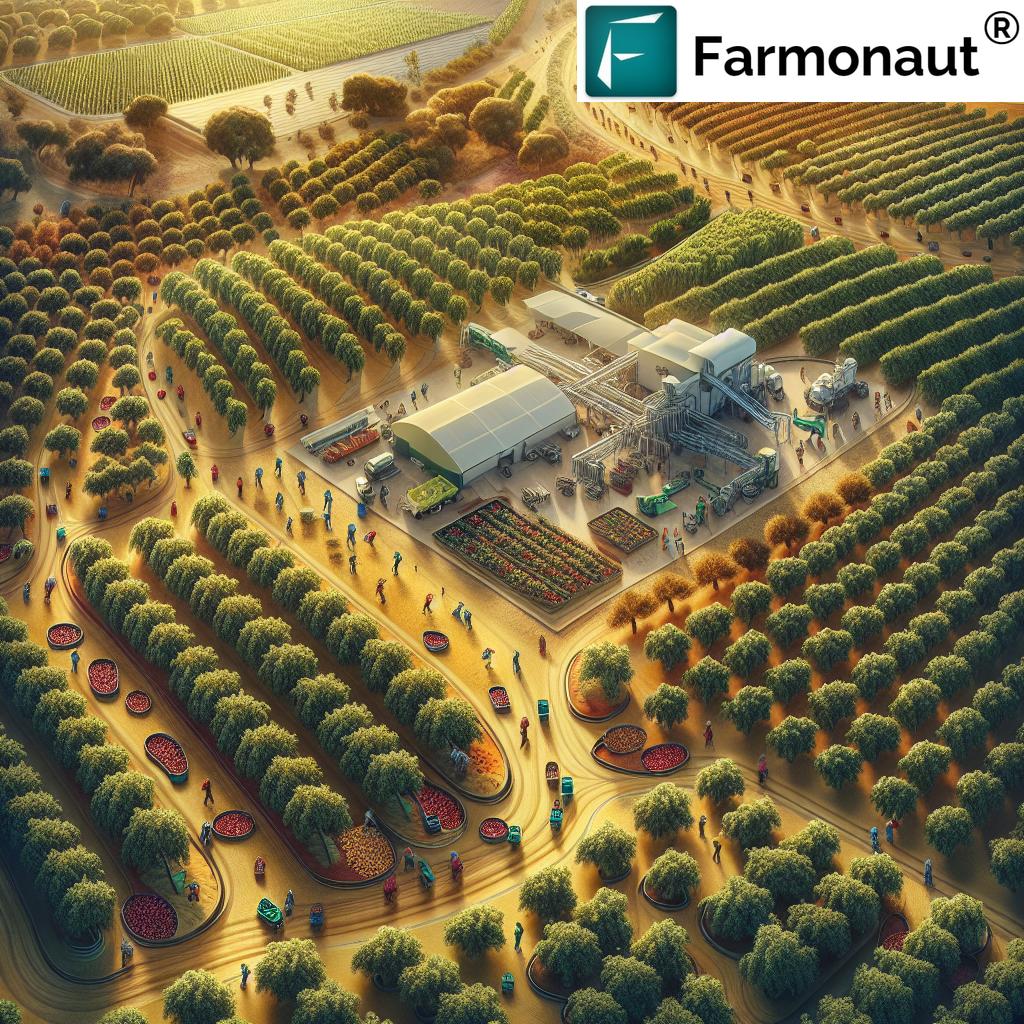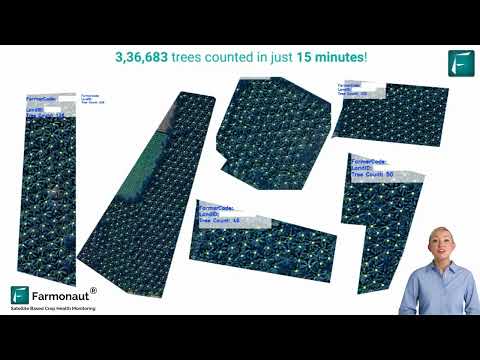Sustainable Cherry Picking: Discover Adelaide Hills’ Bountiful Orchards and Best Practices for a Fruitful Season
“Adelaide Hills cherry orchards use permanent netting, increasing yield by up to 30% and reducing bird damage by 90%”
Welcome to the lush, rolling landscapes of Adelaide Hills, where the cherry season is in full swing, and the orchards are bursting with vibrant, juicy fruits. As we delve into the world of sustainable cherry picking in this picturesque South Australian region, we’ll explore the best practices that have led to a bountiful harvest and discover why this year’s season is particularly special.
The Early Bird Gets the Cherry: Adelaide’s Extended Picking Season
This year, we’ve witnessed an exciting development in the Adelaide cherry season. The harvest kicked off approximately two weeks earlier than anticipated, offering an extended period for fruit enthusiasts to enjoy pick-your-own fruit farms. This early start has been a blessing for both orchardists and cherry lovers alike, providing ample opportunities to savor the fruits of Adelaide Hills’ labor.
“Adelaide’s cherry season started early this year, extending the pick-your-own experience by approximately 2-3 weeks.”

Sustainable Orchard Practices: The Key to Success
At the heart of this year’s successful cherry picking in Adelaide Hills lies a commitment to sustainable farming methods. South Australian cherry orchards have embraced innovative techniques that not only ensure a high-quality yield but also prioritize environmental stewardship.
- Permanent Netting: One of the most effective strategies implemented by orchards is the use of permanent netting. This method has proven invaluable in protecting cherries from bird damage, a common challenge faced by fruit growers. The netting acts as a physical barrier, significantly reducing crop losses and allowing cherries to reach their full ripeness potential.
- Innovative Pollination Techniques: To enhance fruit set and quality, many orchards have introduced beehives during the blooming period. This natural approach to pollination has resulted in improved yields and better-formed fruits.
- Soil Management: Sustainable soil practices, including organic matter incorporation and cover cropping, have helped maintain soil health and fertility, crucial for long-term orchard productivity.
- Water Conservation: Efficient irrigation systems and water management strategies have been implemented to conserve this precious resource while ensuring optimal cherry growth.
These sustainable orchard practices have not only contributed to a successful harvest but also set a precedent for environmentally conscious farming in the region.
Cherry Varieties: A Taste of Adelaide Hills
The Adelaide Hills agriculture scene boasts a diverse array of cherry varieties, each with its unique flavor profile and characteristics. Let’s explore some of the popular cherry varieties in Australia that you can find in the region:
| Cherry Variety | Flavor Profile | Appearance | Best Picking Time | Sustainability Features |
|---|---|---|---|---|
| Stella | Sweet with a balanced tartness | Dark red, heart-shaped | Mid-December | Permanent netting, drought-resistant |
| Rainier | Exceptionally sweet, low acidity | Yellow with red blush | Late December | Bee-friendly pollination, organic pest management |
| Merchant | Rich, full-bodied sweetness | Deep burgundy, round | Early December | Water-efficient irrigation, soil conservation |
| Bing | Classic sweet cherry flavor | Dark mahogany, firm | Mid to Late December | Integrated pest management, biodiversity promotion |
| Lapins | Sweet with a hint of spice | Bright red, large | Late December to Early January | Self-fertile, reduced chemical inputs |
This diverse selection ensures that there’s a cherry to suit every palate, making cherry picking in Adelaide Hills an exciting adventure for fruit enthusiasts.
The Best Time for Cherry Picking
Knowing the best time for cherry picking is crucial for both enjoyment and getting the finest fruits. In Adelaide Hills, the picking season typically spans from mid-November to early January, with peak times varying slightly depending on the variety and seasonal conditions.
- Early Season (Mid to Late November): Early varieties begin to ripen, offering a first taste of the season.
- Peak Season (December): Most varieties reach their prime, providing the widest selection and best flavors.
- Late Season (Late December to Early January): Late-ripening varieties conclude the season, often with larger, sweeter fruits.
For the best experience, we recommend checking with individual orchards for their specific picking dates, as these can vary based on micro-climate conditions and farming practices.

Managing Bird Pressure: A Delicate Balance
Managing bird pressure in orchards is a significant challenge for cherry growers in Adelaide Hills. Birds, particularly native species, are attracted to the sweet fruits and can cause substantial crop losses if left unchecked. However, innovative and sustainable solutions have been implemented to protect the harvest while respecting the local ecosystem:
- Permanent Netting: As mentioned earlier, this is the primary defense against bird damage. The netting creates a physical barrier that prevents birds from accessing the fruit while allowing sunlight and air to penetrate.
- Visual Deterrents: Reflective tape, holographic bird scarers, and predator decoys are used to discourage birds from entering orchards.
- Sound Devices: Some orchards employ acoustic bird deterrents that emit predator calls or distress signals to keep birds at bay.
- Habitat Management: Creating alternative food sources and habitats away from the orchards helps divert birds from the cherry trees.
These methods have proven effective in managing bird pressure while maintaining the ecological balance of the region.
Embracing Technology for Sustainable Farming
In the ever-evolving world of agriculture, technology plays a crucial role in enhancing sustainability and productivity. Farmonaut, a leading agricultural technology company, offers innovative solutions that can significantly benefit cherry orchards in Adelaide Hills.
Through satellite-based crop monitoring, Farmonaut provides real-time insights into orchard health, helping farmers make informed decisions about irrigation, fertilization, and pest management. This technology can be particularly useful for:
- Monitoring crop health and identifying potential issues early
- Optimizing water usage through precise irrigation scheduling
- Tracking growth patterns and predicting harvest times
- Assessing the effectiveness of sustainable farming practices
By integrating these technological solutions, cherry growers can further enhance their sustainable practices and ensure consistent, high-quality yields.
Family-Friendly Fruit Picking: Creating Memories in Adelaide Hills
Family-friendly fruit picking experiences have become a cherished tradition in Adelaide Hills. These outings offer more than just fresh cherries; they provide an opportunity for families to connect with nature, understand food production, and create lasting memories.
Many orchards in the region have embraced this trend by offering:
- Guided picking tours explaining sustainable farming practices
- Children’s activities and educational programs about cherry cultivation
- Picnic areas for families to enjoy their freshly picked fruits
- Farm-to-table experiences showcasing local produce
These initiatives not only support local agriculture but also foster a deeper appreciation for sustainable farming among visitors of all ages.
The Future of Adelaide Hills Agriculture
As we look to the future, the outlook for Adelaide Hills agriculture is bright, particularly in the cherry sector. The region’s commitment to sustainable practices, coupled with innovative farming techniques, positions it well to face future challenges such as climate change and market demands.
Key areas of focus for the future include:
- Climate Adaptation: Developing cherry varieties more resilient to changing weather patterns
- Water Management: Implementing advanced irrigation systems to conserve water while maintaining crop quality
- Soil Health: Continuing to improve soil management practices for long-term sustainability
- Technology Integration: Further adoption of precision agriculture tools, like those offered by Farmonaut, to optimize orchard management
By focusing on these areas, Adelaide Hills is set to remain a premier cherry-growing region, offering sustainable, high-quality fruits for years to come.
Conclusion: A Cherry-Pick Perfect Experience
As we conclude our journey through the cherry orchards of Adelaide Hills, it’s clear that this region offers more than just delicious fruits. It’s a testament to the power of sustainable farming practices, community engagement, and the harmonious blend of tradition and innovation.
Whether you’re a local resident or a visitor to South Australia, we encourage you to experience the joy of cherry picking in Adelaide Hills. Not only will you taste some of the finest cherries Australia has to offer, but you’ll also be supporting a sustainable agricultural practice that cherishes both the land and its community.
Remember, the cherry season is fleeting, so don’t miss your chance to be part of this delightful annual tradition. Plan your visit, bring your family and friends, and create memories that will last long after the last cherry has been savored.
FAQs about Cherry Picking in Adelaide Hills
- When is the best time to go cherry picking in Adelaide Hills?
The best time is typically from mid-November to early January, with peak season in December. - Are the orchards in Adelaide Hills organic?
While not all orchards are certified organic, many practice sustainable farming methods and minimal chemical use. - Can I bring my own container for cherry picking?
This varies by orchard. Some provide containers, while others allow you to bring your own. It’s best to check with the specific orchard beforehand. - Are dogs allowed in the cherry orchards?
Most orchards do not allow pets due to food safety regulations. Service animals may be an exception. - How much does cherry picking cost?
Prices vary by orchard but typically range from $10 to $20 per kilogram of picked cherries.




